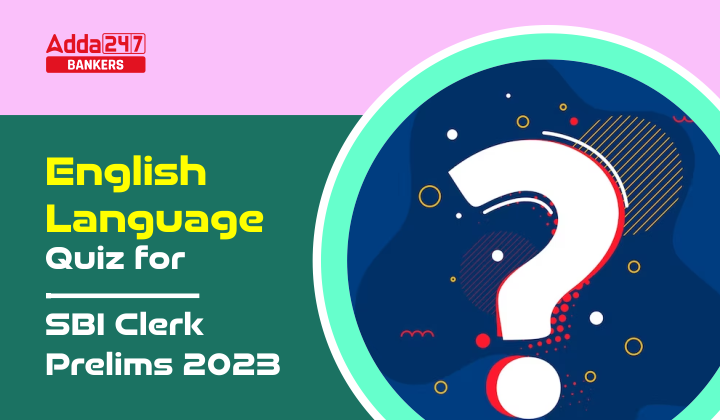Directions (1-5): Below in each question, some sentences are given, find the sentence which is not really contributing to the main theme (or find the odd sentence out) and rearrange the remaining sentences to make a coherent paragraph.
Q1.
A. This has proven a boon for the aerospace industry. Globally, in the next two decades, more than 41,000 aircraft are expected to be produced, with a value of over $6.1 trillion.
B. Across the globe, rising wealth and the advent of discount airlines have made air travel more of a mass proposition than ever before.
C. This bounty will flow not only to plane manufacturers but also to a range of supporting parts and service suppliers.
D.A monthly cap of Rs10,000 for each means users may only use them for such use cases as utilities, telephone bills and so forth.
E. At the same time, the boom in electronic and mobile commerce has increased air-freight volumes as consumers order goods across borders, demanding speedy delivery.
(a) BCEA
(b) DBCA
(c) BEAC
(d) EADC
(e) EABC
Q2.
A. These are the electrodes that record the impulses of individual cells, ideally simultaneously with lots of others, in order to try to work out how networks of cells process information.
B. Until the invention of the microscope, microbiology did not exist. Neuroscience, too, has advanced recently on the back of some powerful tools, particularly techniques for scanning whole brains.
C. But the devices that look at the nitty-gritty of how nerve cells themselves work are still Heath-Robinson affairs.
D. For example, since the 2016 edition, the indicator on ease of getting electricity began to include indicators on reliability of supply, price of electricity, and transparency of tariffs.
E. Science is a mixture of the intellectual and the practical. And the practical requires tools. Until the invention of the telescope, astronomy had been stuck in a rut for millennia.
(a) BCDA
(b) CAED
(c) DBCA
(d) BACD
(e) EBCA
Q3.
A. He speculated that both types of sounds were important for sending signals to others, but was unsure If this was true. In the years that have passed since his death, ornithologists have proved time and again that birds’ songs, squawks and shrieks are used for sending signals to their kin, their rivals and sometimes even their predators.
B. Such quick fixes may even be effective, but will only remain under the glare of the media.
C. In “The Descent of Man and Selection in Relation to Sex” he devoted equal space to both the sorts of sounds that emerge from birds’ beaks and the more percussive noises that they make with other parts of their bodies, such as their feet and feathers.
D. In contrast, their more percussive sounds have received almost no attention at all . A study published in Current Biology by Trevor Murray at the Australian National University, in Canberra, however, suggests that is a mistake. At least one bird creates a specific, audible warning with the flapping of its wings.
E. CHARLES DARWIN was fascinated by bird communication.
(a) DCAB
(b) CABD
(c) ECAD
(d) ECAB
(e) CAED
Q4.
A. They have also taken to flirting with deep science to achieve a part of this vision.
B. The common refrain is that IT services firms are not original enough, and seek to profit only on the deep technology advancements made by other firms, usually based in Silicon Valley.
C. However, to be fair, Infosys Ltd and some of the other firms in this category such as Wipro Ltd and Tata Consultancy Services Ltd (TCS) have actually been hard at work to retool their operations to allow for the creation of new technology “products” such that these become an increasingly important part of their eventual go-to-market propositions.
D. Information technology (IT) services providers are often faulted for not having any “original” product ideas.
E. Meanwhile, private industry can’t justify investment in expensive research that doesn’t yet have clear commercial potential.
(a) DBAC
(b) DBCA
(c) EDCB
(d) BCEA
(e) BDEC
Q5.
A. Another part of the flawed start can be explained by poor incentive design.
B. The overdue transition to the new goods and services tax (GST) has started off on the wrong foot.
C. One part of the flawed start can be explained by political realities. The complicated federal bargaining in the GST council led to a system of five tax rates, along with a special rate for gold, as well as cesses that go against the very basic principles of value-added taxation.
D. The three main problems have been the complicated tax structure that can create distortions, onerous compliance procedures that have created working capital stress in many smaller companies, and technical glitches in the GST network.
E. This widened the trade deficit to $14.01 billion, the highest level since $14.08 billion in May 2017.
(a) BCAD
(b) ECBA
(c) DABC
(d) BDCA
(e) EABD
Directions (6-10): Below in each question, some sentences are given, find the sentence which is not really contributing to the main theme of the passage or find the odd one out.
Q6.
A. Of course, the actual number of new jobs that need to be created every year could be lower, due to falling labour force participation, especially among women. This latter fact itself is a cause for worry, but we won’t dwell upon it here.
B.an estimated 75,000 jobs were lost in the telecom sector due to financial stress in companies, and industry consolidation leading to redundancies.
C. Much of India’s workforce is in the informal sector. Which means that workers do not have a written contract, nor retirement or health insurance benefits.
D. They also lack security of tenure. India’s challenge is to create 10-15 million jobs per year as new aspirants attain working age. In addition to this number are the workers seeking to escape the trap of low productivity jobs in agriculture.
(a) Only A
(b) Only B
(c) Only C
(d) Only D
(e) None of the above
Q7.
A. Among the many new gadgets unveiled at the recent Consumer Electronics Show in Las Vegas was a pair of smartphones able to exchange data using light.
B. Using light offers the possibility of breaking out of this conundrum by exploiting a completely different part of the electromagnetic spectrum, one that is already ubiquitous because it is used for another purpose: illumination.
C. These phones, as yet only prototypes from Casio, a Japanese firm, transmit digital signals by varying the intensity of the light given off from their screens.
D. The flickering is so slight that it is imperceptible to the human eye, but the camera on another phone can detect it at a distance of up to ten meters.
(a) Only A
(b) Only B
(c) Only C
(d) Only D
(e) None of the above
Q8.
A. At the recent Consumer Electronics Show in Las Vegas, talk of Ultra HD was on everyone’s lips.
B. The recent floor of 3D films largely failed that test.
C. The development most are hoping will do the trick is a display technology known as Ultra High-Definition that offers four times the resolution of today’s 1,080p HDTV sets.
D. Having seen interest in 3D television fizzle, consumer-electronics firms are desperate to find some other blockbuster product that will get customers back into big-box stores.
(a) Only A
(b) Only B
(c) Only C
(d) Only D
(e) None of the above
Q9.
A. The rapid shrinkage of Arctic ice cover is one of the most dramatic changes in nature currently occurring anywhere on the planet, with profound environmental and economic implications.
B. There are several oil-related environmental risks specific to the Arctic Ocean.
C. The once fabled northeast and northwest passages will reduce shipping times and costs by as much as half, bringing China and Japan much closer to Europe and North America’s east coast.
D. We stand to lose one of the Earth’s largest and most significant ecosystems.
(a) Only A
(b) Only B
(c) Only C
(d) Only D
(e) None of the above
Q10.
A. Climate change poses a pressing threat to our planet, driven by human activities such as burning fossil fuels and deforestation.
B. Rising temperatures, extreme weather events, and melting ice caps are visible consequences.
C. Urgent global cooperation is essential to mitigate its impact and transition towards sustainable practices.
D. Adopting renewable energy sources and implementing eco-friendly policies are crucial steps to address climate change and ensure a sustainable future for generations to come.
(a) Only A
(b) Only B
(c) Only C
(d) Only D
(e) None of the above
Solutions
S1. Ans.(c)
Sol. Statement B is most likely the starting sentence. Statement E follows B, which is then followed by A and C.
Now we can see Sentence D has no correlation with aerospace industry, and its business, we can rule out Sentence D.
S2. Ans.(e)
Sol. Statement E logically initiate the discussion, followed by B, which further elaborates Idea introduced in E. Subsequently A explains C.
Hence, we can rule out statement D as it is not contributing to provide coherent meaning.
S3. Ans.(c)
Sol. Statement E starts the discussion, followed by C, ‘He’ is the hint. Here ‘He’ refers to CHARLES DARWIN. Then comes statement A, which elaborates “types of sounds”, which is referred in statement C. Statement D is the concluding statement. The statement B is ruled out as it is out of context.
S4. Ans.(b)
Sol. Statement D initiates the discussion, followed by B and C. Statement A concludes the statement. Statement E is out of context.
S5. Ans.(d)
Sol. Statement E is out of context.
S6. Ans. (b)
Sol. Statement B is the not contributing to the main theme of the passage.
S7. Ans. (b)
Sol. “breaking out of this conundrum” in statement B is not related to any of the other three sentences.
S8. Ans. (b)
Sol. The other sentences are about ultra-HD because the interest in 3D television sets has fizzled. 3D films “failing the test” i.e B is out of context.
S9. Ans. (b)
Sol. “oil related environmental risks” is not related to the other sentences which talk about the effects of rapid shrinkage of Arctic ice cover.
S10. Ans. (e)
Sol. All the given sentences are in the same context.





 English Language Quiz For Bank Foundatio...
English Language Quiz For Bank Foundatio...
 English Language Quiz For Bank Mains Exa...
English Language Quiz For Bank Mains Exa...





